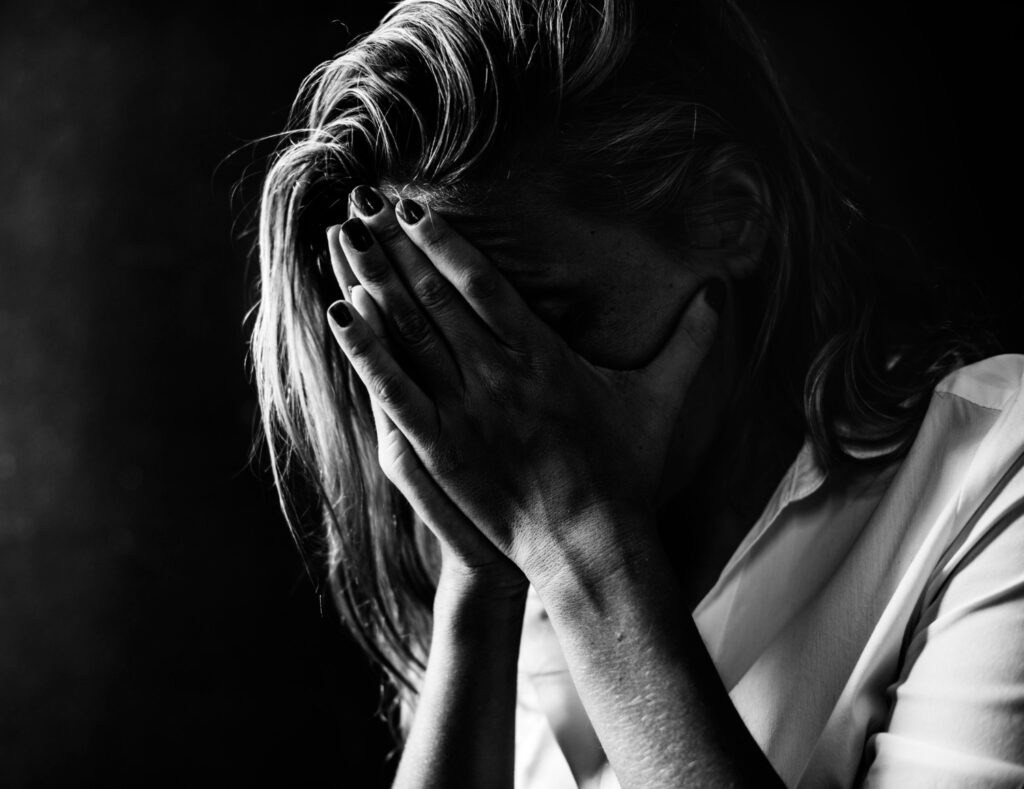
How to Overcome Anxiety
Anxiety is that which arises in response to perceived threats or stressors. It is a natural response that prepares the body for action in the face of implied peril or detriment. Anxiety can manifest through a range of physical, emotional, and cognitive symptoms, similar to increased heart rate, sweating, heartbeat, restlessness, and fear. Although anxiety is a natural and necessary response to stress, it can become problematic when it is excessive or occurs in the absence of real problems. Anxiety diseases are a group of mental disorders characterized by excessive and illogical fear and anxiety.
[Examples of anxiety disorders include generalized anxiety disorder, social anxiety disorder, panic disorder, and specific phobias.]
Anxiety disorders can have a significant impact on a person’s daily life, making it difficult to participate in social activities, work, or school. Treatment for anxiety disorders usually involves a combination of psychotherapy, medication, and lifestyle changes, such as exercises and relaxation techniques.

Anxiety is a natural emotion that can become problematic when it is excessive or occurs when there is no real disorder. Anxiety illnesses are a group of mental health conditions that can have a significant impact on a person’s daily life, making social conditioning, work, or academia difficult. Managing anxiety is important for maintaining a healthy and happy life.
Having occasional feelings of anxiety is a normal part of life, but people with anxiety disorders experience frequent and excessive anxiety, fear, terror, and panic in everyday situations. These feelings are unhealthy if they affect your quality of life and prevent you from functioning normally.
Common symptoms of anxiety disorders include:
- Feeling nervous
- Feeling helpless
- A sense of impending panic, danger, or doom
- Increased heart rate
- Hyperventilation
- Sweating
- Trembling
- Obsessively thinking about the panic trigger
Here are some tips for overcoming anxiety
I. Identify and understand your anxiety
Identifying the triggers and symptoms of anxiety is an essential step in managing anxiety. Take the time to identify what triggers your anxiety and the symptoms you are witnessing. Keeping a diary to track anxious behaviors can help you understand patterns and triggers. Understanding the root cause of anxiety can also help you deal with it. It is essential for a reminder that the anxiety is not your fault and that you are not alone.
II. Relaxation exercises
Relaxation methods can help you reduce symptoms of anxiety by promoting a sense of calm and well-being. Deep breathing exercises, progressive muscle relaxation, and awareness practices are effective means of relaxation.
Deep breathing exercises involve inhaling through your nose for four seconds and slowly exhaling through your mouth for six seconds.
Progressive muscle relaxation involves tensing and relaxing every muscle group in your body. Mindfulness practices, similar to contemplation, can help you focus on the present moment and reduce anxious behaviors.
III. Cultivate healthy habits
Cultivating healthy habits can help reduce anxiety symptoms. Exercise and physical activity can help reduce stress and promote relaxation. Eating a balanced diet can help reduce anxiety symptoms by ensuring that your body is receiving the nutrients it needs. Getting enough sleep is also crucial for managing anxiety. Avoiding drugs and alcohol is essential, as they can worsen anxiety symptoms.
IV. Challenge negative thoughts and beliefs
Negative thoughts and beliefs can contribute to anxiety. Challenging these thoughts and beliefs can help reduce anxiety symptoms. Cognitive restructuring involves identifying negative thoughts and replacing them with positive ones. Challenging irrational beliefs involves questioning the evidence that supports them. Reframing anxious thoughts involves viewing situations in a more positive light.
V. Seek professional help
If your anxiety is interfering with your daily life, seeking professional help is essential. Therapy options, such as Cognitive-Behavioral Therapy (CBT) or exposure therapy, can help you manage anxiety symptoms. Medications for anxiety disorders can also be effective in reducing symptoms.
Managing anxiety is important for maintaining a healthy and happy life. Identifying triggers and symptoms, practicing relaxation techniques, cultivating healthy habits, challenging negative thoughts and beliefs, and seeking professional help are effective ways to manage anxiety.
Remember that anxiety is not your fault, and you are not alone. With the right tools and support, it is possible to overcome anxiety.
Here are 11 tips for coping with an anxiety disorder:
- Keep physically active.
Develop a routine so that you’re physically active most days of the week. Exercise is a powerful stress reducer. It can improve your mood and help you stay healthy. Start out slowly, and gradually increase the amount and intensity of your activities. - Avoid alcohol and recreational drugs.
These substances can cause or worsen anxiety. If you can’t quit on your own, see your healthcare provider or find a support group to help you. - Quit smoking, and cut back or quit drinking caffeinated beverages.
Nicotine and caffeine can worsen anxiety. - Use stress management and relaxation techniques.
Visualization techniques, meditation, and yoga are examples of relaxation techniques that can ease anxiety. - Make sleep a priority.
Do what you can to make sure you’re getting enough sleep to feel rested. If you aren’t sleeping well, talk with your healthcare provider. - Eat healthy foods.
A healthy diet that incorporates vegetables, fruits, whole grains, and fish may be linked to reduced anxiety, but more research is needed. - Learn about your disorder.
Talk to your healthcare provider to find out what might be causing your specific condition and what treatments might be best for you. Involve your family and friends, and ask for their support. - Stick to your treatment plan.
Take medications as directed. Keep therapy appointments and complete any assignments your therapist gives. Consistency can make a big difference, especially when it comes to taking your medication. - Identify triggers.
Learn what situations or actions cause you to stress or increase your anxiety. Practice the strategies you developed with your mental health provider so you’re ready to deal with anxious feelings in these situations. - Keep a journal.
Keeping track of your personal life can help you and your mental health provider identify what’s causing you stress and what seems to help you feel better. - Socialize.
Don’t let worries isolate you from loved ones or activities.










